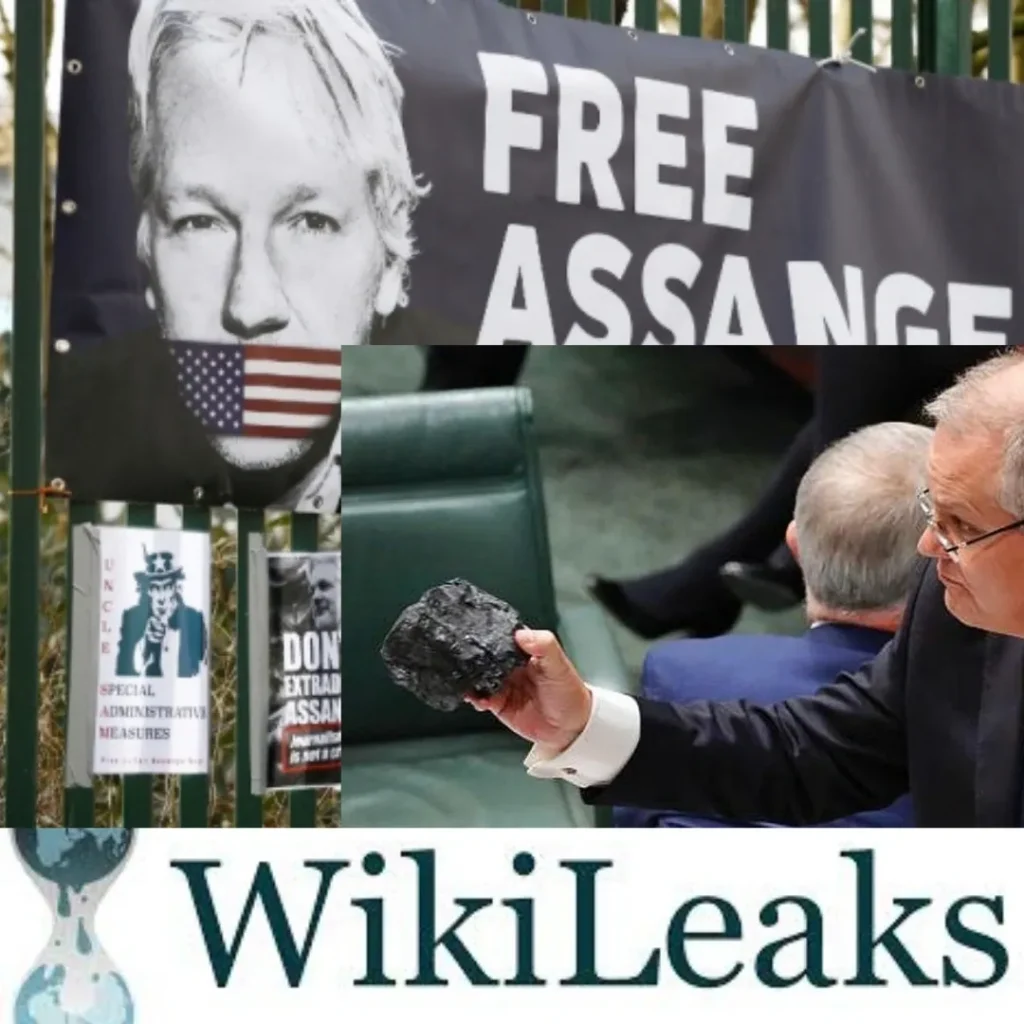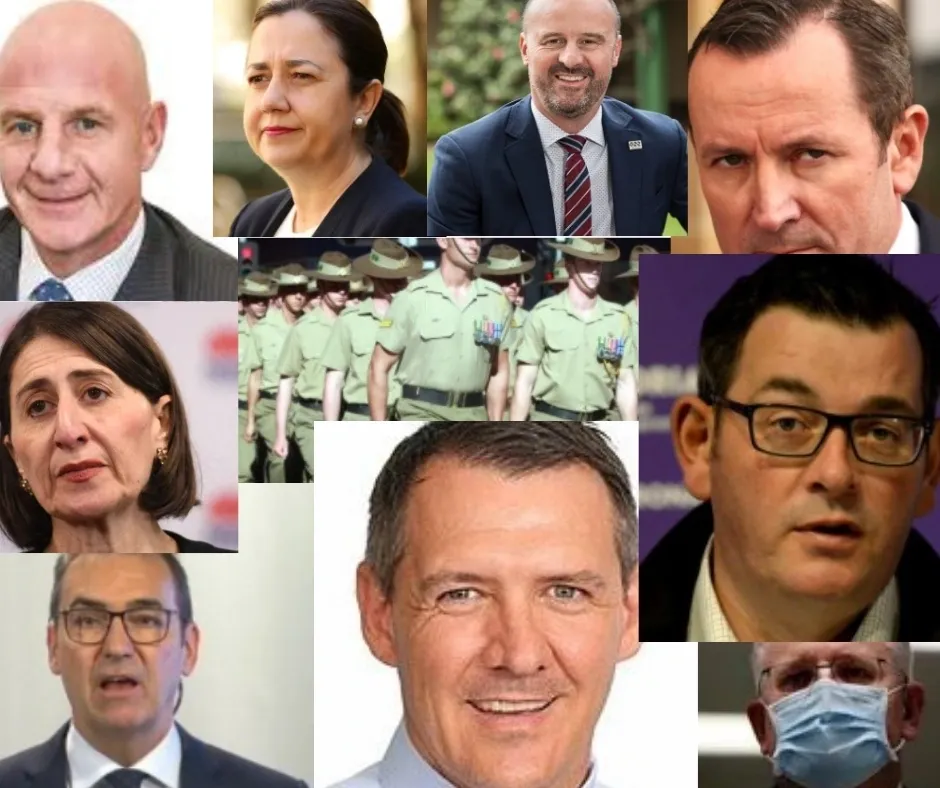
The notion that Australia is the safest place for Julian Assange is naïve – can the Morrison Government be trusted not to hand him over to their closest ally even when there’s a Democrat in the White House?
By Jackie Pearson
Greens Senator Sarah Hanson Young used Twitter following the UK decision not to extradite Assange to the United States of America to convey a sentiment that is heart-warming but naïve and dangerous: “Australia must bring #JulianAssange home, now. After the UK court’s ruling, there is no more excuse. He is an Australian citizen and deserves to come home. The Australian government should never have abandoned him, at the whim of the US, in the first place.”
In an ideal world, everything the Senator says is true. For a couple of hours it seemed like we’d be able to bring Julian home and thereby restore some faith in the value of an Australian passport.
Prime Minister Scott Morrison told Melbourne’s radio 3AW he had noted the UK Justice’s decision to refuse a request by the United States Government to extradite Assange.
“Assuming that it all turns out, his is like any other Australian, he is free to return home if he wished,” Morrison said.
“He is going through those processes, consular support has consistently been offered to Mr Assange,” he said.
As the founder of WikiLeaks, the US has held Assange responsible for the release of top secret documents relating to US military campaigns in Iraq and Afghanistan. As a result, the US is seeking his extradition to face 14 espionage charges, the equivalent of 175 years imprisonment or a death sentence.
Not off the hook
Marcus Strom, Federal President of the Media Entertainment and Arts Alliance Media division said the decision by a British judge to prevent the extradition to the United States of Julian Assange, who is a member of the MEAA, was welcome.
Strom called on the US government to drop his persecution. The court ruled against extradition on health grounds, accepting medical evidence that Assange would be at risk in US custody.
“However, journalists everywhere should be concerned at the hostile manner in which the court dismissed all defence arguments related to press freedom,” Strom said.
“Julian has suffered a 10-year ordeal for trying to bring information of public interest to the light of day, and it has had an immense impact on his mental and physical health,” he said.
“But we are dismayed that the judge showed no concern for press freedom in any of her comments, and effectively accepted the US arguments that journalists can be prosecuted for exposing war crimes and other government secrets, and for protecting their sources.
“The stories for which Julian faces prosecution were published by WikiLeaks a decade ago and revealed war crimes and other shameful actions by the United States government. They were clearly in the public interest.
“The case against Assange has always been politically motivated with the intent of curtailing free speech, criminalising journalism and sending a clear message to future whistle blowers and publishers that they too will be punished if they step out of line.
“The extradition decision is an important step towards freedom for Julian Assange, but he still faces significant hurdles. The US has already signaled its intention to appeal to a higher court.
“MEAA now urges the US government to drop all charges against Julian Assange. The Morrison Government should use its close relationship with the US to call for the prosecution to cease, and it should expedite Julian’s safe passage to his home country if that is his wish.”
Homecoming?
The idea of Assange returning to Australia to live a free, relatively normal existence, is a long way off and a long bow to draw. If he ever secures reasonable bail terms and survives the extradition appeal, he may very well make it to Australian shores but could he sleep comfortably at night?
On December 22, Morrison was rewarded for his loyalty to the Trump administration with the Legion of Merit military decoration for “leadership in addressing global challenges” and strengthening the US-Australia alliance.
Morrison’s allegiance to the US is so strong that he has been prepared to burn ties with China, Australia’s most important trading partner, and incinerate the Chinese export market for a lengthening list of Australian industries – barley, wine, lobsters, beef, cotton, timber, tourism, education – even his beloved coal.
Australia’s Prime Minister did not need to go on the front foot and be the first in the world to call for an inquiry into China and Wuhan’s handling of COVID, but he did, gladly. He took that reckless step, even though, according to CNBC, China took in a third of all Australian exports in 2018-19.
In the middle of 2020, Morrison declared that Australia needed more muscular defence systems as the Pacific became the likely focal point for world domination in the decades to come. Our government will spend $270 billion over the next 10 years on long-range missiles and on researching hypersonic weapons systems. Our first acquisition was anti-ship cruise missiles from none other than the United States Navy. The ties are very close.
Our community may need brave organisations like WikiLeaks more than ever if Australia continues its current trajectory as America’s Mini Me even with the imminent regime change in Washington DC..
We currently have a federal government and a Prime Minister willing to condone raids on the homes of ABC journalists and the ABC’s head offices in Ultimo. We have a government and a Prime Minister willing to snuggle up with the Trump regime to the extent he will cause a great deal of grief for Australian exporters and fundamentally ignore Australia’s responsibilities to our Pacific neighbours as China muscles in.
Morrison and his cabinet take these positions in the full light of day. And let’s not even mention the ongoing travesty of offshore detention and asylum seekers being summarily deported. Julian Assange, once (if ever) finally free would be much safer taking Mexico’s offer of asylum than returning to Melbourne as an Australian citizen.


